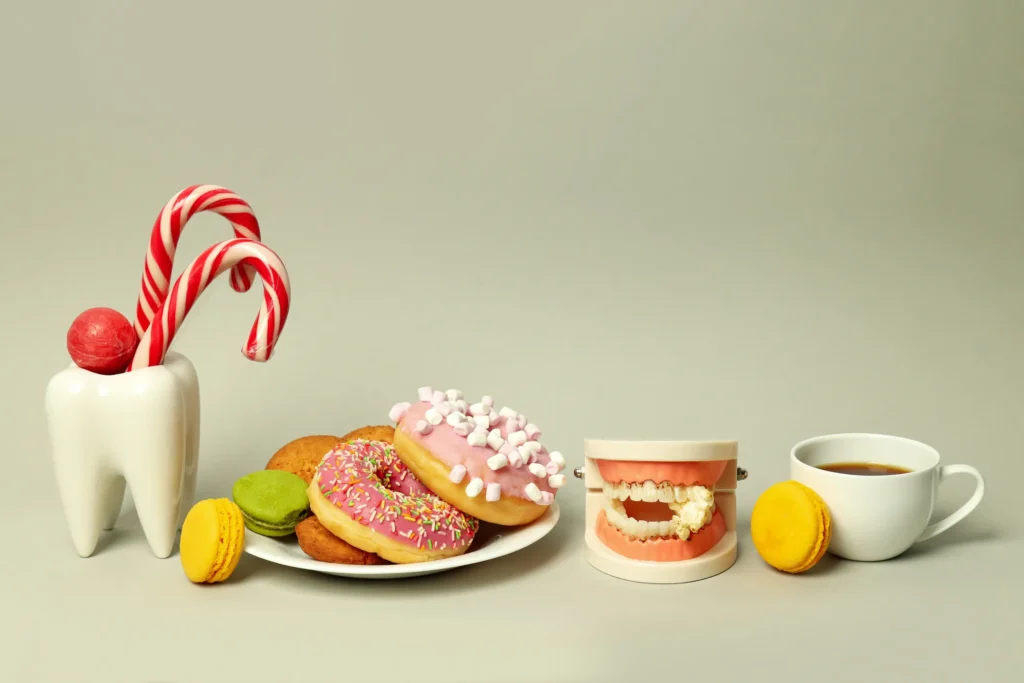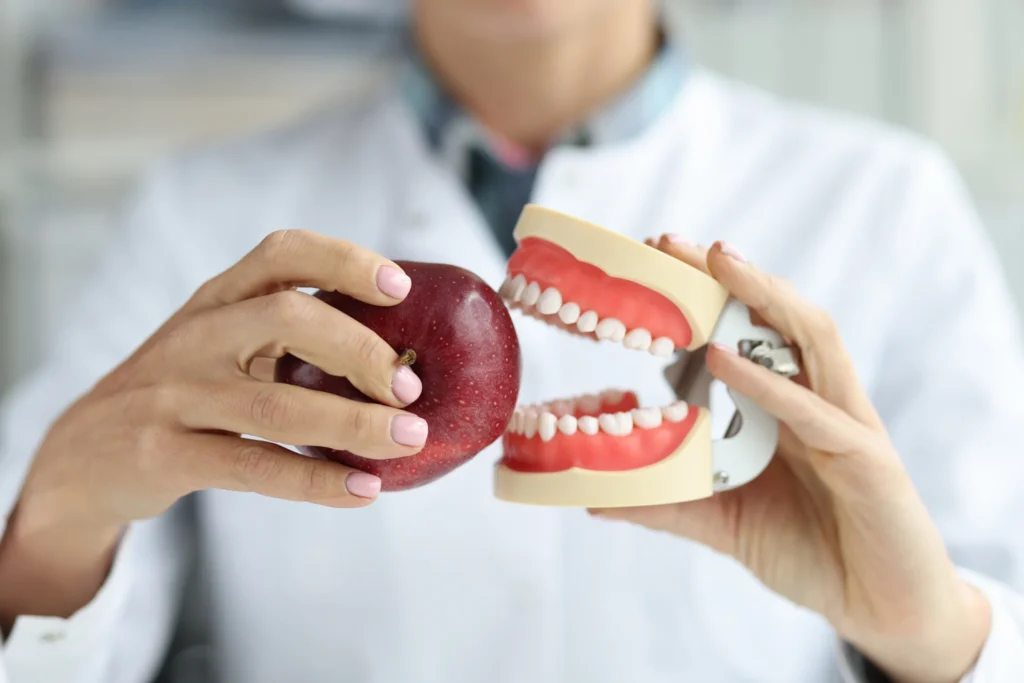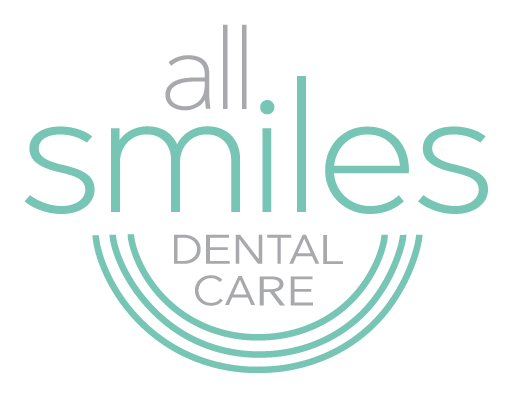Foods That Harm Your Teeth: What to Avoid for a Healthier Smile
What Food to Avoid for a Healthier Smile
We are often reminded that “you are what you eat,” and this saying holds particularly true for our oral health. Your diet plays a massive role in preventing cavities, gum disease, and enamel erosion. The foods and drinks you consume can fortify your teeth or wage a daily assault on your smile. All Smiles Dental Care uncovers the foods that harm your teeth and explains why they are so damaging.

Why Diet Matters for Oral Health
Your mouth is a complex ecosystem with good and bad bacteria. When you consume sugary or starchy foods, you’re not just feeding yourself. You’re feeding the harmful bacteria that live in your mouth. These bacteria produce acids that attack your tooth enamel.
This acid attack demineralizes the enamel, and if it happens too frequently, it leads to cavities. A proper diet and dental hygiene plan works to limit these acid attacks and provide your teeth with the nutrients they need to stay strong.
Top Foods That Harm Your Teeth
Some foods are well-known villains when it comes to oral health. Below, we explain some of the top offenders to limit in your diet.
Sugary Candies and Sweets
Hard candies, chewy caramels, and sticky sweets are among the worst foods for teeth. They are loaded with sugar and linger in your mouth for a long time. The longer sugar stays in contact with your teeth, the more time bacteria have to produce damaging acids. This is a primary cause of tooth decay from sugar.
Carbonated Soft Drinks
Sodas and other carbonated beverages are essentially a bath of sugar and acid for your teeth. A single can of cola can contain more sugar than your entire recommended daily intake. The high acidity of these drinks erodes tooth enamel directly, and the sugar feeds acid-producing bacteria, creating a destructive cycle.
Starchy, Refined Carbohydrates
Foods like white bread, potato chips, and crackers might not seem sweet, but they are major contributors to tooth decay. These simple starches break down into sugar almost immediately in your mouth. They also become a gummy paste that gets stuck in the crevices between your teeth, providing a prolonged feast for bacteria.
Foods You Didn’t Know Were Harmful
Beyond the obvious suspects, many seemingly healthy or harmless foods can also cause significant damage. Some of these foods include:
- Dried Fruits: While they do contain vitamins and fiber, they are also highly concentrated in sugar and are very sticky. Like candy, they cling to teeth, providing a long-lasting sugar source for bacteria.
- Acidic Fruits and Juices: Consuming them frequently can erode tooth enamel. The issue of acidic foods and oral health is especially prominent with fruit juices, which bathe the teeth in both acid and concentrated sugar.
- Sports and Energy Drinks: These drinks are particularly harmful because people often sip them over an extended period, continuously exposing their teeth to enamel-eroding ingredients.
How to Minimize the Damage
You don’t have to eliminate all your favorite treats, but you can be smarter about how you consume them. The most effective ways to minimize damage include:
- Eat Them with Meals: Saliva production increases during meals, which helps neutralize acids and wash away food particles. If you’re going to have a sugary treat, it’s best to have it as a dessert rather than a standalone snack.
- Rinse with Water: After consuming sugary or acidic foods, swish your mouth with water. This helps to rinse away lingering sugars and acids.
- Wait to Brush: It may sound counterintuitive, but you should wait at least 30 minutes to brush your teeth after consuming something highly acidic. Brushing immediately can scrub the acid into your softened enamel, causing more damage.
- Use a Straw: When drinking soda, juice, or sports drinks, use a straw to minimize their contact with your teeth.
Foods That Are Good for Your Teeth
Some foods can harm your teeth, but others can help protect them. The foods that are healthy for your teeth include:
- Crunchy Fruits and Vegetables: Foods like apples, carrots, and celery are high in water and fiber. The act of chewing them stimulates saliva flow, and their fibrous texture can help to gently scrub your teeth.
- Dairy Products: Cheese, milk, and yogurt are rich in calcium and phosphates, which help to remineralize and strengthen tooth enamel. Cheese is particularly beneficial as it helps to raise the pH level in your mouth, reducing the risk of cavities.
- Leafy Greens: Spinach, kale, and other leafy greens are full of vitamins and minerals, including calcium, which is essential for building strong enamel.

Reach Out to All Smiles Dental Care
All Smiles Dental Care provides dental care for all stages of your life. We know your diet is a powerful tool in your oral health arsenal. Limiting sugary and acidic items, focusing on tooth-friendly alternatives, and maintaining a consistent oral hygiene routine are the keys to long-term dental wellness. Schedule an appointment with our dental team to learn more about diet and dental hygiene.
Frequently Asked Questions
- Are “sugar-free” drinks safe for my teeth? Not always. While sugar-free drinks don’t contribute to tooth decay from sugar, many still contain high levels of acid (like citric acid or phosphoric acid) that can erode tooth enamel. It’s important to check the ingredients, as these are still considered foods that damage enamel.
- Which is worse for my teeth: snacking all day or eating one big dessert? Snacking all day is generally worse. Every time you eat, you trigger an acid attack in your mouth. If you snack continuously, your teeth are under constant assault, and your saliva doesn’t have a chance to neutralize the acid and remineralize your enamel.
- Does my diet matter if I have excellent brushing and flossing habits? Yes, absolutely. While excellent diet and dental hygiene are your best defense, a poor diet can overwhelm even the best brushing and flossing routine. Constantly consuming acidic and sugary foods creates an environment where decay and erosion are almost inevitable.
